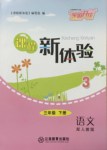题目内容
请根据句意从方框中选择合适的动词,并用其适当时态填空,使句子通顺。
feel iron buy plan drink
1.—Where is Jack at the moment?
—He tomorrow’s trip with Simon in the classroom.
2.—What a hot day! Are you thirsty? —No. I up a bottle of water.
3.—Mum, I can’t find my e-dictionary now.
—Don’t worry. I another one for you.
4.In the beginning, I it not easy to get on with Mr Li.
5.His mother clothes while his father was reading newspapers.
1.is planning
2.have drunk
3.will buy
4.felt
5.was ironing
【解析】
试题分析:
1.句意:此刻杰克在哪儿?——他正在和西门在教室里面计划明天的行程。结合语境可知下文描述的是现在正在进行的动作,故用现在进行时态。主语he是单数第三人称,故谓语动词用单数,根据所给单词,可知填is planning,正在计划。
2.句意:多热的天啊!你渴了吗?-不,我已经喝了一瓶水。结合语境可知下文描述的是现在已经完成的动作,故用现在完成时态。根据所给单词,可知填have drunk,已经喝了。
3.句意:妈妈,现在我不能找到我的电子词典了。——不要担心。我会为你再买一本。结合语境可知下文描述的是将来要发生的动作,故用一般将来时态。根据所给单词,可知填will buy,会买。
4.句意:在一开始,我感到和吴老师相处不太容易。结合语境可知宾语从句中描述的是过去发生的动作,故谓语动词用一般过去时态。根据所给单词,可知填过去式动词felt,感觉。
5.句意:当他的父亲正在读报纸的时候,他的母亲正在熨衣服、while引导的时间状语从句强调主从动作的同时发生,结合语境可知主句描述的是过去正在进行的动作,故用过去进行时态。根据所给单词,可知填was ironing,正在熨。
考点:选词填空
点评:选词填空一直是英语考试中的难点,得分率比较低。解答此类题型的方法一般就是根据句子意思推断出词义,结合所给单词判断出所缺单词,然后根据该单词在句子中的句子成分,所起作用,进行适当词形变化。由于没有多余选项,在解题方法上,此类题型也适用于排除法。即先完成较为简单的选项,将一时没有把握的选项留待最后再来完成。

 芝麻开花课程新体验系列答案
芝麻开花课程新体验系列答案